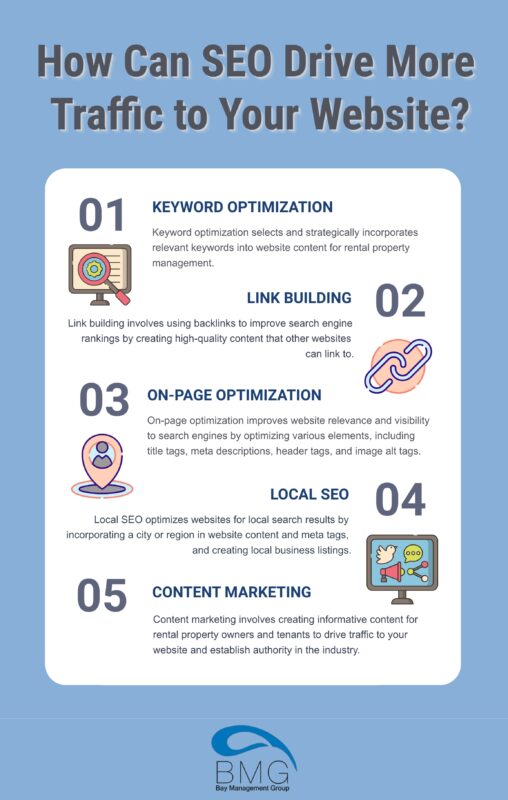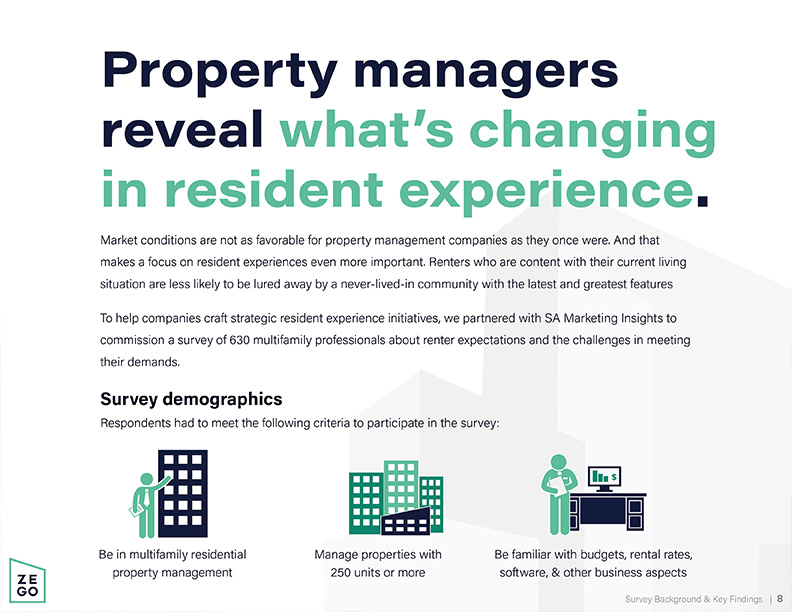Discover the secrets to optimizing your rental properties with these top management tips for maximum profitability and tenant satisfaction.

Image courtesy of Wolfgang Weiser via Pexels
Table of Contents
- Introduction: Becoming the Best Rental Property Manager
- Understanding the Basics of Rental Property Management
- Set Clear Goals for Your Rental Property
- Effective Communication with Tenants
- Maintenance and Repairs: Keeping the Property in Top Shape
- Financial Management: Rent Collection and Budgeting
- Finding and Retaining Good Tenants
- Legal Know-How: Complying with Property Laws and Regulations
- Leveraging Technology for Property Management
- Continuous Learning and Improvement
- Conclusion: The Journey to Effective Property Management
- Frequently Asked Questions (FAQs)
Introduction: Becoming the Best Rental Property Manager
We will begin by introducing the importance of effective rental management and what makes someone great at managing rental properties. Being a successful property manager requires a combination of skills, knowledge, and dedication to ensuring that properties are well-maintained, tenants are happy, and finances are in order. Let’s explore how to manage a rental property and optimize property management to become the best rental property manager you can be.
Property management optimization is all about maximizing the efficiency and effectiveness of managing rental properties. By implementing the right strategies and practices, property managers can streamline operations, improve tenant relations, and increase the overall profitability of their rental properties. Learning how to manage a rental property effectively is essential for achieving success in the real estate industry.
Understanding the Basics of Rental Property Management
Managing rental properties involves a set of tasks and responsibilities to ensure that the properties are well maintained, profitable, and attractive to tenants. Let’s delve into what rental property management is all about and why it is essential to be effective in this role.
What is Rental Property Management?
Rental property management is the process of overseeing residential or commercial properties on behalf of the owners. This includes tasks such as finding and screening tenants, setting rental rates, collecting rent, performing property maintenance, and handling tenant concerns. In essence, it involves taking care of all aspects related to the property to ensure a smooth and successful renting experience for both landlords and tenants.
The Importance of Being an Effective Manager
Being an effective property manager is crucial for the success of any rental property. A skilled manager can attract and retain good tenants, maintain the property in top condition, ensure timely rent payments, and navigate legal requirements efficiently. By excelling in managing rental properties, one can maximize profits, minimize risks, and build a positive reputation in the real estate industry.
Set Clear Goals for Your Rental Property
Setting clear goals for your rental property is essential for successful and efficient management. By establishing specific objectives, you can focus your efforts and make strategic decisions to maximize the property’s potential.

Image courtesy of www.hostfully.com via Google Images
What Are Property Goals?
Property goals are specific objectives that you aim to achieve with your rental property. These goals provide a roadmap for your management efforts and help you stay on track towards success. Whether it’s increasing occupancy rates, improving tenant satisfaction, or maximizing rental income, setting clear goals is the first step towards optimization.
Examples of Goals for Your Property
Here are some common examples of rental property goals that can guide your management strategy:
1. Increase Occupancy Rates: Setting a goal to maintain high occupancy rates can ensure a steady stream of rental income and minimize vacancies.
2. Enhance Property Value: Improving the overall condition and curb appeal of the property can increase its value over time, attracting higher-quality tenants.
3. Improve Tenant Satisfaction: Focusing on providing excellent customer service and addressing tenant needs promptly can lead to happier and more loyal tenants.
4. Optimize Rental Income: Setting a target for maximizing rental income through strategic pricing, cost control, and efficient property management can boost profitability.
By defining clear and measurable goals for your rental property, you can streamline your management efforts, track your progress, and ultimately achieve success in the competitive rental market.
Effective Communication with Tenants
Communication plays a vital role in successful property management. As a property manager, it is essential to maintain open and clear communication with your tenants to ensure a positive rental experience for both parties. Let’s delve into the importance of good communication and how you can effectively engage with your tenants.
Why Good Communication Matters
Clear and transparent communication is key to fostering a positive relationship with your tenants. By keeping them informed about any relevant updates, policies, or maintenance schedules, you can help them feel valued and respected. Good communication also minimizes misunderstandings and reduces conflicts, leading to a more harmonious rental experience for everyone involved.
How to Keep Communication Open and Regular
To maintain effective communication with your tenants, consider implementing the following tips:
1. Establish multiple channels of communication, such as email, phone, or a dedicated online portal, to ensure tenants can reach out to you easily.
2. Respond promptly to tenant inquiries or concerns to show that you value their feedback and are committed to addressing their needs.
3. Provide clear and detailed information about important matters, such as rent payments, property rules, or upcoming maintenance activities, to keep tenants informed and prepared.
4. Schedule regular check-ins with tenants to discuss any issues, gather feedback, and build a strong rapport based on trust and mutual respect.
By prioritizing communication and actively engaging with your tenants, you can create a positive rental environment that benefits both parties.
Maintenance and Repairs: Keeping the Property in Top Shape
Regular maintenance and quick repairs are essential to keep both tenants happy and the property value up. Let’s dive into the key aspects of maintaining and repairing rental properties.

Image courtesy of www.baymgmtgroup.com via Google Images
Routine Property Checks
Performing regular property checks is crucial to identify any issues before they escalate into significant problems. It’s recommended to schedule routine inspections at least once every few months. During these checks, property managers can assess the condition of the property, identify any maintenance needs, and ensure that everything is functioning properly.
Handling Repair Requests Efficiently
When tenants report maintenance issues or repair needs, it’s essential to address them promptly. Establish clear communication channels for tenants to submit repair requests, and ensure that these requests are prioritized based on their urgency. Property managers should work with reliable contractors or maintenance personnel to promptly address repair needs and ensure that the property remains in excellent condition.
Financial Management: Rent Collection and Budgeting
In the world of rental property management, handling finances is a crucial aspect of ensuring success. From collecting rent on time to setting a budget for expenses, effectively managing the financial side of your rentals can make a significant difference. Let’s delve into the key strategies for streamlining rent collection and budgeting for property expenses.
Streamlining Rent Collection
One of the essential tasks for property managers is collecting rent from tenants. To make this process smoother and more efficient, consider implementing a few strategies:
1. Online Payments: Encourage tenants to pay rent online through secure platforms. This method is convenient, saves time, and helps track payment records easily.
2. Automated Reminders: Set up automated reminders for rent due dates to ensure tenants are prompt with payments. This can help reduce late payments and improve cash flow.
3. Clear Rent Policies: Establish clear rent collection policies from the beginning to avoid any confusion. Make sure tenants understand the due dates, late fees, and preferred payment methods.
Effective Budgeting for Property Expenses
Creating and managing a budget for property-related expenses is key to maintaining financial stability in your rental business. Here are a few tips on effective budgeting:
1. Track Expenses: Keep a detailed record of all expenses related to the property, including maintenance, repairs, utilities, and taxes. This will help you identify areas where costs can be reduced.
2. Plan for Contingencies: Allocate a portion of your budget for unexpected expenses or emergencies. Having a contingency fund can prevent financial stress when unforeseen costs arise.
3. Review Regularly: Periodically review your budget to ensure it aligns with your financial goals and projections. Make adjustments as needed to optimize your expenses and maximize profits.
By streamlining rent collection and implementing effective budgeting practices, you can strengthen the financial foundation of your rental properties and pave the way for long-term success.
Finding and Retaining Good Tenants
One of the essential parts of managing a rental property is finding and attracting the right tenants. To ensure a positive rental experience for both parties, it’s crucial to focus on attracting quality tenants who will care for the property and pay rent on time.
| Tip Number | Management Tip |
|---|---|
| 1 | Set clear goals and objectives for the rental business |
| 2 | Implement technology to streamline operations |
| 3 | Invest in staff training and development |
| 4 | Regularly review and optimize pricing strategies |
| 5 | Seek feedback from customers and act on it |
| 6 | Monitor key performance metrics to track progress |
| 7 | Stay up-to-date with industry trends and innovations |

Image courtesy of www.linkedin.com via Google Images
Start by advertising your property in the right places. Consider listing on reputable rental websites, social media platforms, or local classifieds. Describe your property accurately and highlight its unique features to attract potential tenants.
Screen potential tenants carefully by conducting thorough background checks. Verify their employment status, rental history, and credit score to ensure they are reliable and financially stable. This process helps in selecting tenants who are likely to stay long-term and take good care of the property.
How to Keep Tenants Happy
Retaining good tenants is just as crucial as finding them in the first place. Happy tenants are more likely to renew their lease and recommend your property to others, reducing turnover costs and vacancy rates.
Communication is key to keeping tenants satisfied. Respond promptly to their inquiries and address maintenance requests in a timely manner. Regularly check in with tenants to ensure their needs are being met and make them feel valued.
Consider implementing a loyalty program or offering incentives for long-term tenants, such as discounted rent for lease renewals or small gestures of appreciation like personalized welcome packages. Building a positive relationship with tenants encourages them to stay and take pride in the property.
Legal Know-How: Complying with Property Laws and Regulations
rental property law is a set of rules and regulations that property managers need to follow to ensure they are operating within the legal boundaries. These laws cover various aspects, including tenant rights, lease agreements, fair housing practices, and property maintenance standards.
Staying Compliant with Regulations
To stay compliant with property laws and regulations, property managers must regularly review and update their knowledge of legal requirements. This includes understanding and adhering to local zoning laws, building codes, health and safety standards, and rent control ordinances.
Additionally, property managers should ensure that all necessary permits and licenses are obtained before renting out a property. By staying informed and following all legal requirements, property managers can protect themselves from potential legal issues and provide a safe and fair living environment for their tenants.
Leveraging Technology for Property Management
In today’s digital age, technology plays a crucial role in simplifying various tasks, including managing rental properties. By embracing the right tools, property managers can streamline processes, enhance efficiency, and improve communication with tenants. Let’s explore how leveraging technology can optimize property management.

Image courtesy of zeevou.com via Google Images
Property Management Software
property management software is designed to facilitate the day-to-day operations of managing rental properties. These platforms offer features such as tenant screening, rent collection, maintenance tracking, and financial reporting. By using property management software, managers can centralize data, automate tasks, and stay organized. This technology eliminates the need for manual record-keeping, reducing the likelihood of errors and saving time.
Online Communication Tools
Effective communication is key to successful property management. Online communication tools, such as email and messaging apps, provide a convenient way to stay in touch with tenants. Managers can send important announcements, respond to inquiries promptly, and resolve issues efficiently. Additionally, some platforms offer tenant portals where renters can submit maintenance requests and make rent payments online. By leveraging these tools, property managers can foster better communication and enhance tenant satisfaction.
Continuous Learning and Improvement
In the dynamic world of rental property management, there is always room for growth and improvement. By continuously learning and honing your skills, you can become a more effective and successful property manager. Let’s explore why ongoing education is essential and where you can find valuable resources to help you on your journey.
The Importance of Ongoing Education
Never stop learning! Just like any other profession, staying updated on the latest trends, laws, and best practices in property management is crucial for your success. Continuously educating yourself allows you to adapt to changes, implement new strategies, and provide better service to your tenants.
Resources for Learning
Thankfully, there are multiple resources available to help you enhance your property management skills. Consider joining professional organizations, attending workshops and seminars, reading industry publications, and taking online courses. Additionally, networking with fellow property managers can provide valuable insights and advice.
Conclusion: The Journey to Effective Property Management
Throughout this blog post, we have explored various tips and strategies for optimizing your property management skills. Managing rental properties efficiently is essential for success in the real estate industry. By implementing the practices discussed in this article, you can enhance your property management abilities and achieve better outcomes for both yourself and your tenants.

Image courtesy of www.gozego.com via Google Images
Key Takeaways:
Effective property management involves setting clear goals, communicating well with tenants, maintaining the property, managing finances wisely, attracting and retaining good tenants, staying compliant with legal requirements, leveraging technology, and continuously learning and improving.
By focusing on these key areas, you can streamline your property management processes, enhance tenant satisfaction, and ultimately increase the value of your rental properties.
Remember, property management is an ongoing journey that requires dedication, patience, and a willingness to adapt to changing circumstances. By continuously striving to improve your skills and knowledge, you can become a successful and efficient property manager.
Frequently Asked Questions (FAQs)
What is the best way to communicate with tenants?
Communication with tenants is key to successful property management. The best way to communicate with tenants is through clear and timely messages. Whether it’s regarding rent reminders, maintenance schedules, or general updates, ensure that your communication is transparent and easily accessible. Utilizing multiple channels like emails, text messages, or a tenant portal can help reach tenants effectively.
How do I handle emergency repairs?
Emergency repairs are urgent situations that require immediate attention to ensure the safety and well-being of your tenants. In case of emergency repairs, it’s crucial to have a clear protocol in place. Make sure your tenants know how to reach you or a designated emergency contact after hours. Have a list of trusted contractors or repair services on hand to swiftly address any issues that arise. Being prepared and responsive in emergency situations can help maintain a positive relationship with your tenants.
What should be included in a budget for property expenses?
Creating a budget for property expenses is essential for effective financial management. When planning your budget, consider including recurring costs such as mortgage payments, insurance premiums, property taxes, maintenance fees, and utilities. Factor in expenses for regular upkeep and repairs to maintain the property’s value. It’s also wise to set aside a contingency fund for unexpected costs or emergencies. By outlining all potential expenses in your budget, you can better track your financial health and make informed decisions about your property management.
Idaho Poperty Management
